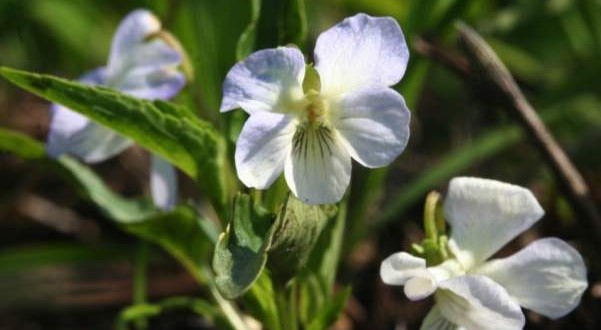According to the National Trust, the fen violet (Viola persicifolia) is known to exist at only three sites in the wild in the UK.
One of these is Wicken Fen, Cambridgeshire, where it had not been seen since 2003 but was rediscovered during a botanical survey this week.
Seeds of the plant can lie dormant in the ground for many years and will only grow when the ground has been disturbed and it has the right weather conditions.
National Trust countryside manager Martin Lester said: “It was a moment of satisfaction, surprise, tinged with relief that we had found it again.
“This delicate wetland plant is clinging on to survival not just in this country but across Europe. No-one can really explain why it can disappear for long periods only to reappear decades later – let’s hope it says around for a few years this time.”
Wicken Fen is home to many rare plant species including the marsh pea, the marsh fern, the milk parsley and the whorled water milfoil, as well as a number of different orchids.
The site is part of the Wicken Fen Vision – a 100-year project by the National Trust to create a 13,000 acre nature reserve stretching from the fen to the outskirts of Cambridge.
Mr Lester said the return of the fen violet “cements the important role Wicken Fen and the Wicken Fen Vision project has in international conservation, protecting and creating new habitats for endangered species”.
Agencies/Canadajournal
 Canada Journal – News of the World Articles and videos to bring you the biggest Canadian news stories from across the country every day
Canada Journal – News of the World Articles and videos to bring you the biggest Canadian news stories from across the country every day



